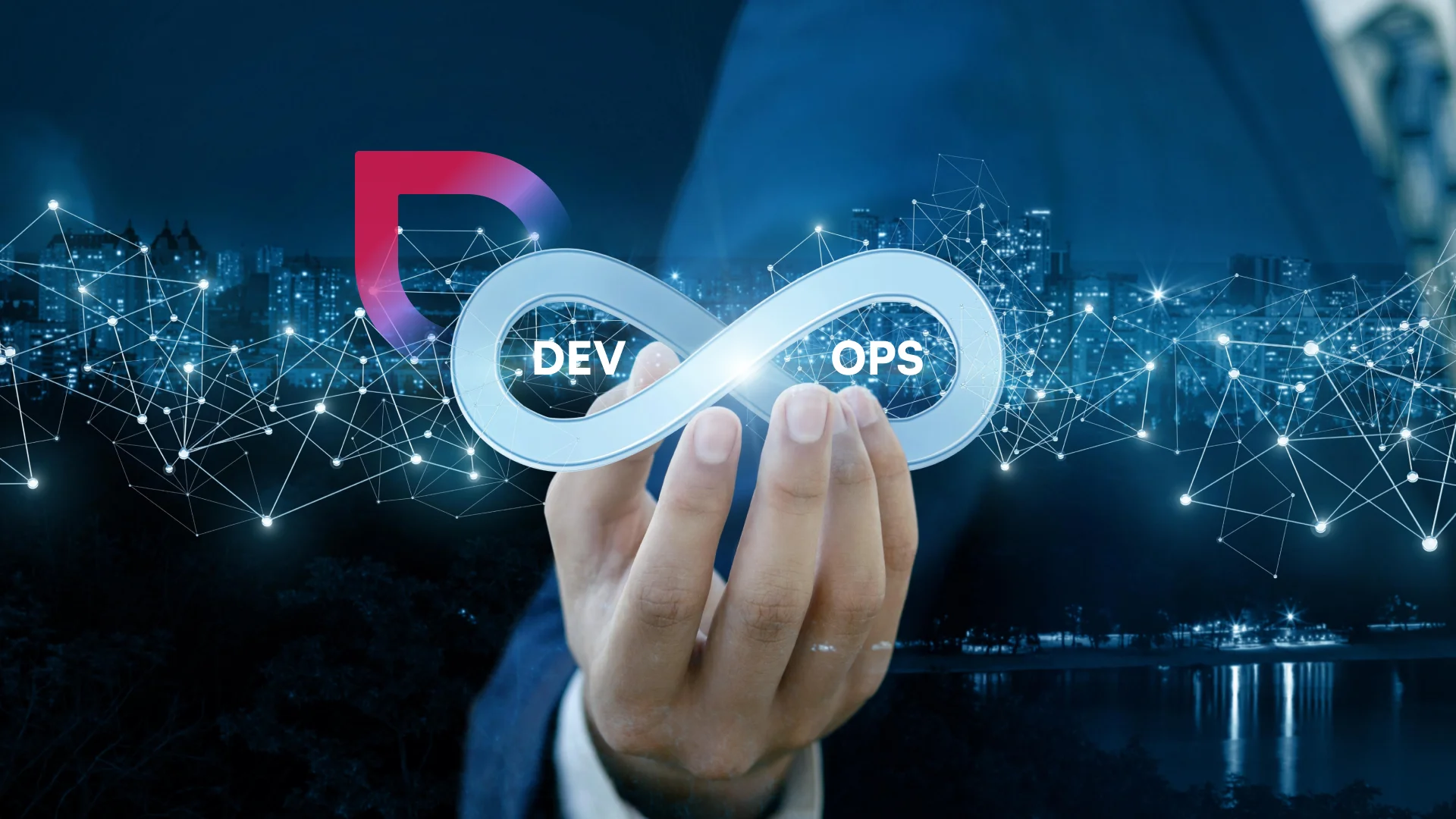Top DevOps Trends and Future Scopes
- DevOps
- January 19, 2023
DevOps has a bright and great future. The practical apps of DevOps are growing daily. Knowing the future of DevOps developers can help you boost the efficacy and quality of your mobile app development. We can anticipate seeing some drastic changes in the upcoming years. So, stay ahead of the competition to enhance the efficiency of your internal operations.
As per Grand View Research, the size of the worldwide DevOps market is predicted to reach $12.85 billion by 2025. These statistics showcase the growing acceptance of cloud technologies, high adoption of agile methodologies, and digitization of enterprises for automating business procedures.
In this blog, we will discuss the future trends of DevOps in several areas of the IT industry and where maximum scopes lie. Before that, let us first know what DevOps is!
What is DevOps?
DevOps is generally a blend of software development and IT operations. If you include DevOps into your ways of business operations, you will get more care over the whole pipeline and that helps your teams work better with less repetition.
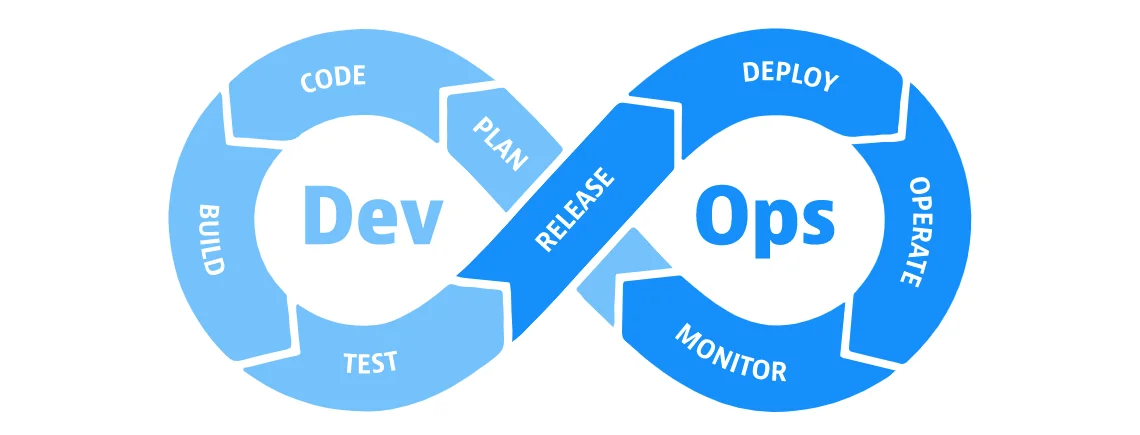
This is particularly important as applications are becoming a highly more appropriate effort in how businesses run, and mobile app-building depends so essentially on the capacity of your team of adapting fast to your customers’ requirements and making adjustments to your apps those are both worthwhile and sensible.
The DevOps’ future is highly synonymous with the business’ future. Although we cannot forecast with complete confidence how this methodology will develop in the future, there are some future trends of DevOps that we can predict to see in terms of building DevOps.
Read also: Why Do you Need DevOps Culture for your Next Project
Top DevOps Trends and Future Scopes
Now that you know that DevOps explains constant professional cooperation between software developers and IT employees, let’s plan on explaining some possible future scopes for this growing tech field!
1. A Surge in the Adaptation of Serverless Computing
Adopting serverless computing has been seen quite a lot recently. Businesses are inclined to go serverless as it serves two of the biggest benefits: reliability and efficiency. However, it took a while for businesses to embrace this trend due to the fear of getting justifiable ROI and desired industry support.
But having seen the unavoidable benefits that serverless computing allows us to experience, the trend finally took a surge in businesses as it’s pretty cost-efficient yet so extensive. Enterprises now can channel their resources towards primary business activities as they have got serverless computing to take care of infrastructure management.
Also, it unties DevOps teams from the risk of potential maintenance issues. Serverless Computing Market is projected to reach a healthy CAGR of over 23.17% in between the forecast period (2021 – 2026).
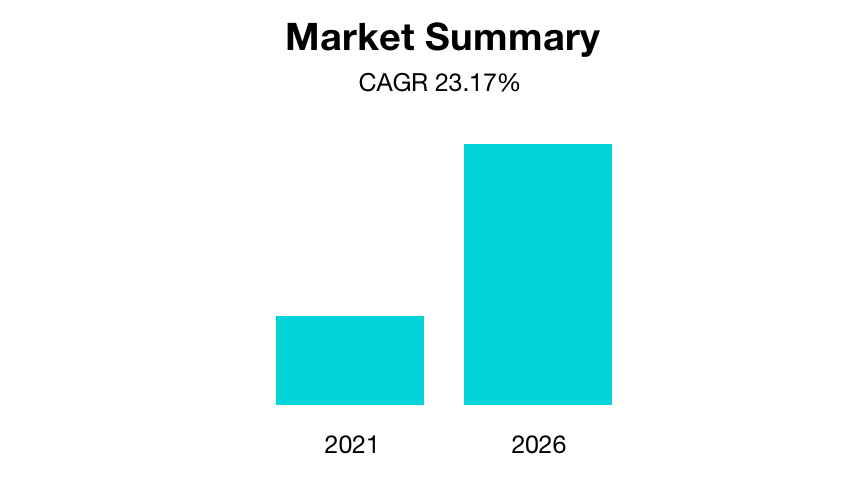
2. Microservices Architecture is Growing Unexpectedly
With microservices, the DevOps teams can scale each and every application segment as per the business requirements instead of scaling the app all at once.
Moreover, if something goes wrong then microservices architecture makes it easy to deal with the issue without hindering the entire app. Microservices break the data into individual units that are scalable and flexible.
With these features, microservices architecture has proven itself to be one of the most prominent trends of DevOps in 2023.
On the other note, businesses must be aware of the fact that suboptimal implementation of microservices can make you suffer unfavorable results such as the loss of data and security risks.
3. Kubernetes are Quite in a Talk
Kubernetes, which is also known as K8s, is a type of microservice software that enables container orchestration. It has been gaining popularity for a few years as it has become the first choice for organizations to manage software delivery.
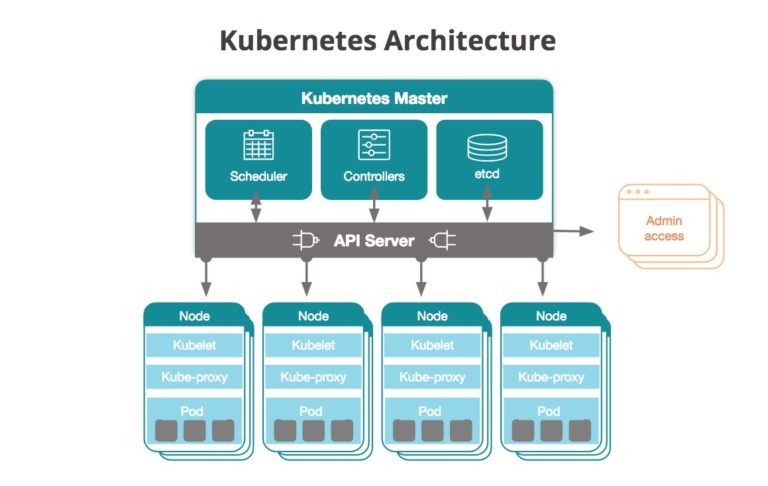
If you are a software developer, Kubernetes is a gem for you as you will be able to share multiple apps and software with the IT operations team in no time. Also, productivity gets revamped while you are working with Kubernetes workflow as it helps you with to build, deploying, and testing pipelines in DevOps.
Moreover, container management systems and Kubernetes can also decline the requirement for human interaction as it promotes absolutely automatic Noops scenario. Its pipeline architecture approach makes it easier and simpler for developers to have a hand on ML and AI tools to analyze and automate records and work processes.
4. DevSecOps has Become Quite Popular
Security is one of the primary reasons why DevSecOps has taken a sudden surge of popularity. DevSecOps revamps traditional DevOps with robust security from the very beginning.
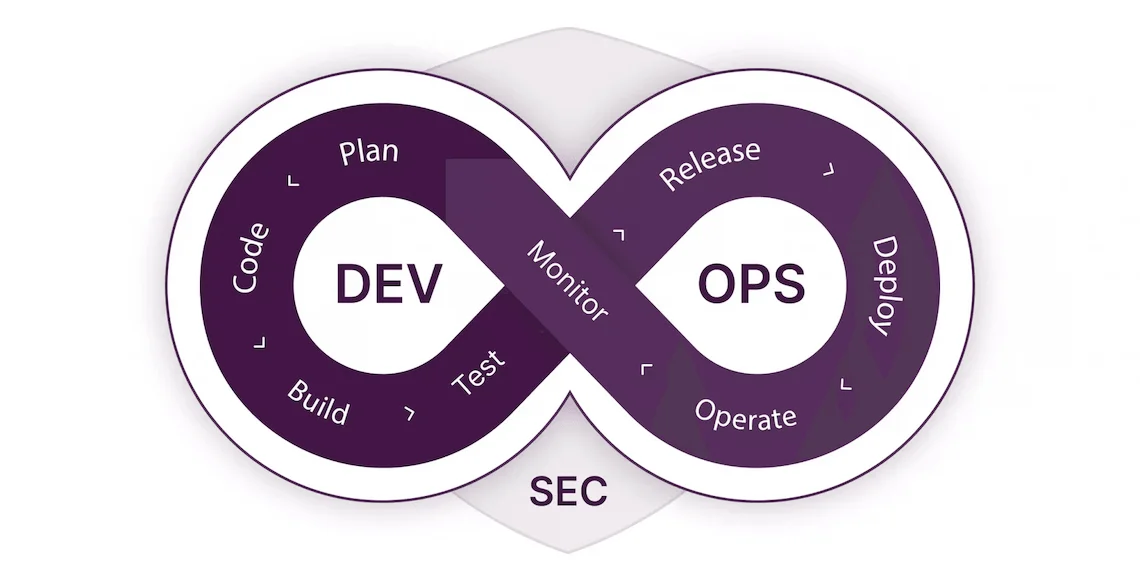
All the attacks, malware attacks, and security breaches that cause issues around the different networks today, DevSecOps has brought you all out the agile security network that will be dealing with the security issues and then incorporating the new technologies to impede all coming hazards.
5. GitOps is Being Adopted Frequently
GitOps is one more newbie to the concept of DevOps, what it does is helps automate and control the infrastructure.
It, however, makes use of traditional DevOps practices such as code review, version control, and CI/CD pipelines. In GitOps, the declaration files can be stored in a Git repository which is similar to storing app development code.
So, we can consider the primary goal of this technology is to amp up the speed of development so that the teams are always prepared to face the changes and updates.
6. Data Science in DevOps Development
Numerous organizations that have executed DevOps into their business operations have enjoyed several advantages. Data science teams may utilize DevOps development practices in the future because of the predominance of custom app development.
If data scientists utilize DevOps, they can remake production models during testing earlier models that they already created. The trend will just become more famous as data scientists and custom app development teams join hands for keeping up with several apps.
7. Machine Learning and Artificial Intelligence in the DevOps Framework
The DevOps methodology, Microservices architecture, and cloud-native approach revolutionize the life cycle of software development. DevOps combines production and testing ambiance and developers find issues before apps go live.
Implementing Machine Learning and Artificial Intelligence in the DevOps pipelines can help you run automation in a better way. Individuals are taking a shift from DevOps to AIOps and DataOps, which concentrate on the utilization of ML and AI for learning from logs and checking metrics for driving DevOps in a controlled way.
DevOps is growing with Artificial Intelligence and making life easier for operation teams, development teams, and DevOps engineers.
8. Automation is the Target
DevOps is getting an industry standard for numerous businesses. DevOps is an important part of a business strategy in case you want to respond fast to the market demands, boost the time-to-market of your business, and update your software solutions regularly.
Smart application of automation in the DevOps framework implies that the constant updates of the DevOps structure can happen as developers provide content to users regardless of modifications. Automation will continuously take hold in the DevOps’ future.
With the development of the industry, more DevOps automation tools will roll out. This is where developers will require skills for knowing which ones have features that they can automate and which needs an engineer.
9. Scaling for Accommodating Multi-Cloud Environments
Cloud computing is becoming one of the prime requirements in app development and the highly complicated tools and complexities that separate deployment and development. Henceforth, having a DevOps channel in place is more crucial than before.
As communications between the 2 arms of a development cycle, DevOps will possibly acquire more outstandingness. However, more software will be forced to depend on multiple clouds and that will just make the works of DevOps experts harder.
DevOps will become more regarding responding to the transforming technologies that control these cloud platforms and acceptance to ensure that their software will make the most of them.
Moreover, it will need insight into native features accessible in these cloud platforms and communicating them to development teams so they can reduce labor and work that should be done amid deployment.
10. Container Technology
Container technology is arising and developing quicker than before. Developers can use containers in many ways to offer several advantages. Moreover, they can use containers to sandbox apps for resource constraints and security.
This technology brings an extensive range of scopes for boosting system security, user security, and performing user analytics. With the enhancement of containerization technology, containers will become more affordable for deploying.
11. Smooth Security Integration
Maximum security violations result from the exposure at the app layer. Now organizations are trying to maintain a secure and mature software development approach that helps avoid all such threats. Presently, organizations are shifting towards a programmatic approach to app security that implants security in the software development lifecycle’s former phases.
Organizations require a security approach that goes over only scanning and solving security issues. DevOps can play an important role here. With the constant security philosophy, DevOps can allow smooth security integration to permit the development teams to create secure software code quicker than before.
The constant security of DevOps makes sure that testing is done with the development lifecycle and not at its end. Hence, developers can discover code vulnerabilities amid the development stage itself, making sure the software’s security before the formal test stage.
12. PaaS Solutions
PaaS or Platform as a Service is a developing field with many apps for DevOps technology. Now people are no more concerned regarding creating the whole app infrastructure. They just ask for the platform on which they can host their apps.
DevOps has many apps that offer PaaS solutions in terms of constant security, configuration handling, and containerization. It is anticipated that the technology will enhance well in the future and the developers will just require defining a pair of entry points or markers in their apps, and this only would be enough for hosting their apps or deploying by themselves.
13. Integration among Edge Services
The conventional on-premises model is transforming clearly. In the past few years, organizations have shifted to IaaS (Infrastructure as a Service), PaaS (Platform as a Service), and DBaaS (Database as a Service) solutions.
Since cloud technologies are helping out a lot and containerization technologies are becoming popular, DevOps should play a meaningful role in integrating all these services that are hosted on several platforms.
Public clouds are getting more accepted and popular and these days, even the conventional organizations are transitioning to cloud-based solutions due to the cost savings that they can provide.
Now organizations are planning for using configuration handling tools alongside container technologies to automate the infrastructure provisioning and handling completely. This demands a bright future for DevOps.
14. Coding Will Become a Necessitous Skill
Since a lot of organizations have adopted DevOps solutions, they need to invest in their DevOps engineers. Nevertheless, because of the fast pace, technologies are transforming rapidly, which is difficult for businesses and individuals to maintain their DevOps skills.
Testers are one of the most crucial demands in DevOps as they know to code and how to automate scripts. They do this for testing different cases. In case you are unsure about these skills, you are suggested to learn to code immediately. After all, these skills play a pivotal role in these days’ software development.
Since manual testing takes a lot of time, testers must learn code within automated scripts. Automation not just makes sure the market gets features quicker but also boosts the testing efficacy.
15. An Integration of DevOps and Agile Methodologies
Although many find DevOps and agile methodologies as hostile and non-compatible to each other, the main fact is that these 2 systems can sometimes reduce one another’s weaknesses and make a more holistic work ambiance. The enterprise DevOps’ future will possibly complement instead of replacing agile in several office spaces.
Although Agile can break down an assignment into modular and compartmentalized elements, the larger company structure’s ambiguity can sometimes cause inadequacy of communications between teams and missed deadlines.
DevOps development will possibly see much of the agile teams’ internal structure kept in position but for the addition of the operation team that can make better communications between teams and can reduce the harsh move from development to deployment that simple agile methodology sometimes encounters.
Bottom Lines
DevOps’ future is very hopeful and many more organizations are going to adopt this methodology. DevOps methodologies are transforming with new technologies and tools arriving. Hopefully, we have discussed the trends and future scopes of DevOps in this blog and how it will revolutionize the industry in the coming days.





